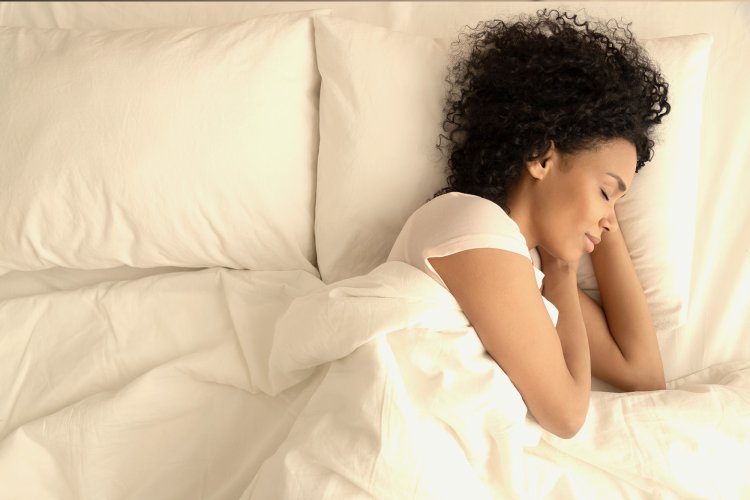Sleep Hygiene and its Impact on Physical Well-being: A Comprehensive Guide
Unlock the secrets of Sleep Hygiene and its Impact on Physical Well-being. Discover expert insights, practical tips, and the profound connection between quality sleep and your overall health.

Introduction
Hello everyone, my name is Michael and I’m here to share with you all some very important information on how our sleep habits can significantly impact our health and daytime functioning. Getting good quality sleep on a regular basis is absolutely crucial for our physical and mental well-being, yet many of us struggle with poor sleep for a variety of reasons. In this comprehensive guide, I want to explain what sleep hygiene means and how implementing good sleep practices and routines can help promote better sleep and overall health. I’ll be discussing topics like how much sleep we need, factors that disrupt sleep, establishing a relaxing bedtime routine, managing screen time before bed, and more. While getting a good night's sleep may seem like an elusive goal for some, making small adjustments to prioritize sleep hygiene can go a long way in improving our quality of life. Let's get started!
What is Sleep Hygiene?
Simply put, sleep hygiene refers to our behaviors and environmental factors that influence the quality and quantity of our sleep. It encompasses our daily habits, routines, physical and mental state leading up to bedtime that can all play a role in how well we drift off and stay asleep through the night. Good sleep hygiene promotes behaviors that are relaxing and conducive to falling asleep easily and quickly. Meanwhile, poor sleep hygiene involves behaviors and habits that are over-stimulating or disruptive to our natural sleep-wake cycle.
Maintaining consistent sleep hygiene is important for establishing regular sleep patterns. Our bodies have an internal circadian rhythm that regulates things like our core body temperature, hormone production, and alertness levels throughout the day. Following cues from our environment like sunlight exposure helps synchronize our circadian rhythm to a 24-hour cycle. However, poor sleep habits can lead to circadian rhythm disruption and make it more difficult to fall and stay asleep when we want to. That's why practicing good sleep hygiene with wind-down routines, a relaxing bedroom environment, and smart sleep schedules is so critical for quality sleep.
The National Sleep Foundation outlines several key components of sleep hygiene:
- Establishing a regular bedtime and wake time schedule, even on weekends.
- Avoiding large meals, caffeine, and alcohol close to bedtime.
- Exercising daily, but not too close to bedtime.
- Keeping a comfortable, dark, and quiet sleep environment.
- Practicing relaxation techniques before bed such as reading or meditation.
- Limiting screen time and bright lights before bed, which can disrupt melatonin production.
- Avoiding naps, especially late in the day, as naps can interfere with nighttime sleep.
Implementing consistent sleep hygiene techniques provides structure that helps regulate our body clock and cues it for optimal sleep-wake cycles. Let's explore some key aspects of sleep hygiene in more depth and how they affect overall health and wellness.
How Much Sleep Do We Really Need?
One important component of assessing your sleep hygiene is knowing how much sleep is enough or ideal for your needs. The actual hours of sleep required can vary slightly between individuals, but the National Sleep Foundation provides general consensus guidelines for different age groups:
- Newborns (0-3 months): 14-17 hours per day
- Infants (4-11 months): 12-15 hours per day
- Toddlers (1-2 years): 11-14 hours per day
- Preschoolers (3-5 years): 10-13 hours per day
- School-age children (6-13 years): 9-11 hours per day
- Teenagers (14-17 years): 8-10 hours per day
- Younger adults (18-25 years): 7-9 hours per day
- Adults (26-64 years): 7-9 hours per day
- Older adults (65+ years): 7-8 hours per day
Getting less than the recommended amount of sleep on a regular basis puts you at risk of experiencing consequences like poor mood, lack of focus, weight gain, and various health issues over time. It's important to assess if you're consistently fulfilling your individual sleep needs based on these guidelines. If not, that's a sign your sleep hygiene may need some adjustment.
Lack of sleep has prevalent health consequences such as obesity, cardiovascular disease, diabetes, and mental health issues. One study found adults who slept less than 6 hours per night were significantly more likely to become obese within 10 years compared to those sleeping 7-8 hours. Sleep deprivation also poses risks like weakened immune function, increased inflammation, and accidents or injuries due to excessive daytime sleepiness. Your sleep hygiene directly impacts how much quality sleep you achieve, which greatly contributes to your risk of disease and overall well-being.
Establishing a Pre-Bedtime Routine
One of the most important sleep hygiene techniques is implementing a regular relaxing routine in the hour or two before bedtime. The goal is to unwind both mentally and physically so your body realizes it's time to prepare for sleep. Establishing a nightly calming routine helps prime our circadian rhythm and sleep-promoting hormones for optimal levels at bedtime. Here are some good suggestions to include:
- Low-impact exercise earlier in the day rather than close to bed if possible. Exercise raises core body temperature which can disturb sleep onset.
- Take a warm (not hot) bath or shower 1-2 hours before bed to lower your body temperature in preparation for sleep.
- Do light stretches or yoga poses in bed to relax your body.
- Read a book, listen to calming music, or do relaxation breathing exercises.
- Write in a gratitude journal, reflecting on positives from the day.
- Do gentle massage or apply relaxing essential oils like lavender.
- Avoid stimulating activity like work, intense discussions, or exercising right before sleep.
- Dim or turn off bright lights, as light exposure suppresses melatonin.
The goal of the pre-bedtime routine is to switch your mind and body to a calm, tranquil state primed for slumber once your head hits the pillow. Keeping this ritual consistent reaps huge benefits for high-quality, undisrupted sleep.

Managing Screen Time Before Bed
One major disruptor of sleep hygiene for many people is screen time in the hours before bed. Whether it's watching TV, browsing social media on phones, playing games on tablets—the blue light emitted from screens can significant disturb our natural circadian rhythms and sleep cycles.
Blue light, which is strongly present in LED screens, tricks our brain into thinking it's daytime by suppressing melatonin production. Melatonin is the sleep-promoting hormone produced in the evenings to help us feel tired and ready for bed. Exposure to blue light in the evenings confuses this internal signal for sleep and makes it harder to fall and stay asleep.
Research shows screen time within 1-2 hours of bed correlates with poorer quality sleep, longer time to fall asleep, and less restorative rest. It's a good idea to implement a screen curfew in the evenings:
- Stop screen use at least 1-2 hours before bedtime when possible.
- Dim blue light filters can help if unavoidable screen use is needed at night.
- Create a relaxing bedtime routine without screens instead, like I mentioned above.
- Avoid phones/tablets in bed, as the light stimulates the brain even if you're trying to sleep.
Limiting screens is one of the most impactful changes you can make for boosting sleep quality and improving your body's internal sleep-wake clock according to your natural circadian rhythm. It eliminates a major source of stimulation and blue light before bed.
Promoting a Relaxing Sleep Environment
Along with having healthy pre-bedtime routines, the surrounding environment when you sleep greatly impacts how easily you can fall asleep and stay asleep through the night. Consider your bedroom space and surroundings in terms of these factors:
- Darkness - Exposure to light suppresses melatonin. Use blackout curtains or an eye mask if needed.
- Noise - Minimize loud sounds, voices, or music that may disturb sleep. Consider a white noise machine.
- Comfort - Invest in a mattress and bedding you find cozy. Keep the temperature cool, around 65-67°F.
- Smells - Light a scented candle or use an essential oil diffuser with relaxing scents before bed.
- Electronics - Don't work or watch TV in bed. Limit phones, tablets to maintain it as sleep space.
- Cleanliness - A tidy, clutter-free room helps you relax easier at night.
Creating an inviting, tranquil bedroom environment is key for your body and mind to unwind fully into a deep, restorative slumber each night. Isolation from visual stimuli, noise, excessive heat or cold, and overall comfort are ideal conditions for promoting quality sleep hygiene in the bedroom.
Managing Stress and Winding Down
Along with environmental factors, our psychological and emotional states approaching bedtime significantly impact how quickly we can fall asleep and feel rested upon waking. Chronic stress, worry, and an overactive mind are common culprits that disrupt sleep. Practicing relaxation has enormous benefits for sleep hygiene:
- Yoga/stretching or deep breathing exercises before bed help relieve muscle tension and calm racing thoughts.
FAQs
What's Your Reaction?




















